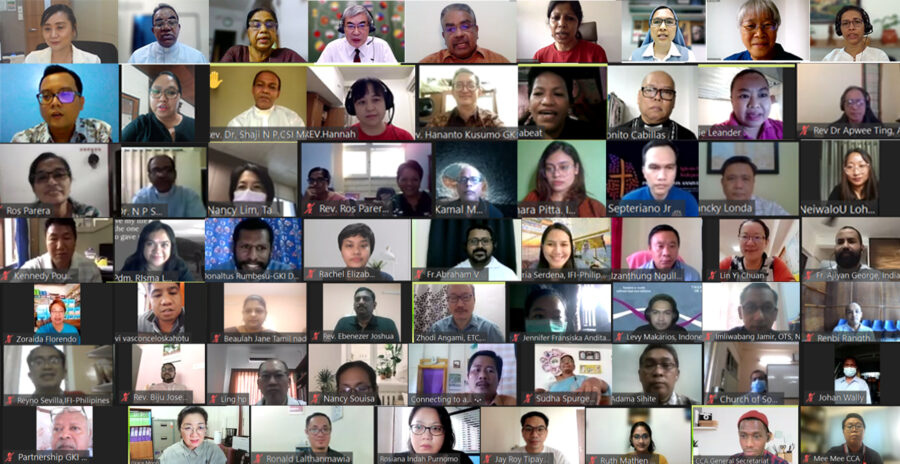CCA’s Symposium on Family Life and Family Values urges churches to increase pastoral attention to all family members
 Participants of Asia Regional Symposium (3-5 August 2021)
Participants of Asia Regional Symposium (3-5 August 2021)
“The pastoral dimension of reconciliation can be helped by strong kinship relations in the family. The respect among family members facilitates the process of restoring relationships. In a context where family life and values, nurtured traditionally for a harmonious life in families and society, are threatened due to the pressures of the modern era, churches in Asia must concentrate more in its pastoral ministry of giving more attention for all family members,” opined the participants of a three-day symposium organised by the Christian Conference of Asia (CCA).
The final day of CCA online Symposium on ‘Family Life and Family Values: Transitions from Tradition to Modernity’ brought together about fifty specially invited participants representing the CCA’s member churches and councils from across the region.
The participants, who were themselves engaged in pastoral ministry, shared the challenges for different age groups and the best practices of ministry during the COVID-19 pandemic.
Often times, the challenges went beyond the immediate family and included wider concerns such as underaged or forced marriage, human trafficking, sexual abuse, and violation of children’s rights.
Rev. Dewi Agustina and Supaporn Yarnasarn were the speakers at the panel discussion on ‘Tradition and Values in Transition: Intergenerational Relations with the Aged Family Members’.
Rev. Dewi Agustina from the Pasundan Christian Church (GKP) in Indonesia shared the importance of classifying different generations of the population to map the right models of ministry, which varied according to the demography of the congregations.
Speaking of family values in the cultural context of GKP, she highlighted respect and responsibility, religious and cultural tolerance, courtesy and hospitality, solidarity and kindness, and clan associations.
Supaporn Yarnasarn, President of the Asian Christian Women’s Committee from the Church of Christ in Thailand, presented the cultural context and societal values surrounding the family in Thai society.
Ms Yarnasarn shared anecdotes and instances of how family members tended to support each other, and focused on respecting the individuality of family members, caring for all persons, and being responsible for each others’ wellbeing.
She also spoke about the gap between the elderly and grandchildren, saying that grandparents longed to spend time with the younger ones, who were instead preoccupied with their gadgets. Thus, the passing on of traditional wisdom and learning was hindered.
The session on ‘Churches’ role and engagement in accompanying families’ invited rich sharing and discussions from among the participants.
Rev. Jenne Jessica Pieter from the Protestant Church in Maluku, Indonesia, spoke about family service and ministries in her church. She shared the different strategies adopted at both the synod and congregational level for the spiritual growth and development of all members. She also shared the special measures taken for children and youth, such as dedicating ten percent of the church’s income to focus on children, and youth engagement strategies such as podcasts and other online means.
Other topics discussed included issues of unemployment and economic insecurity, domestic violence in newly married couples and new families, the online sexual exploitation and abuse of children, and the necessity of establishing welfare desks.
The General Secretary of the CCA, Dr Mathews George Chunakara, in his closing remarks said that the symposium was an opportunity to reflect on the scenario of what has happened to the family in the last few decades, and how such societal changes are affecting families, especially the children, new generations and working parents as well as aged parents and grandparents.
Dr Mathews George Chunakara further added that the Symposium was not an end in itself and shared examples of how this work could continue in the future through CCA member churches and councils all over Asia.
The CCA’s online Symposium on ‘Family Life and Family Values: Transitions from Tradition to Modernity’ was initiated to enable the CCA’s member constituencies to reflect upon the modern demands and stresses upon the family today, and to develop new insights and intergenerational strategies to increase pastoral attention and engagement with all members of the family.











